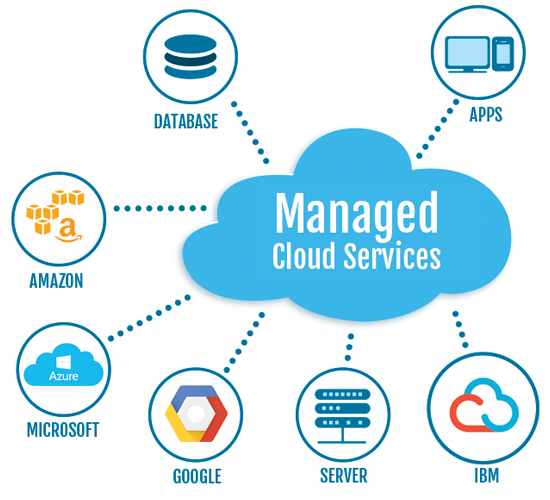Scalable Solutions: Utilizing the Power of Cloud Solutions
In the busy globe of electronic transformation, the use of scalable solutions through cloud solutions has ended up being an essential method for services seeking to thrive and adjust. The ability to perfectly change resources, take care of fluctuating workloads, and maximize performance without being connected to traditional facilities constraints provides a peek into the future of effective and nimble operations. But just how precisely do these cloud services allow such flexibility and what effect could they carry the ever-evolving landscape of business operations?
Advantages of Cloud Scalability
When considering the benefits of cloud scalability, businesses can effectively increase their sources to satisfy changing demands in an inexpensive manner. Cloud scalability refers to the capacity of cloud services to fit varying work by promptly and easily provisioning or de-provisioning resources as required. Among the main benefits of cloud scalability is the capacity for businesses to scale up or down without the requirement for significant ahead of time investments in hardware or infrastructure. This flexibility permits firms to adjust to fluctuating demands, guaranteeing optimum efficiency and cost-effectiveness.
In addition, cloud scalability gives organizations with the agility to respond quickly to market modifications and customer demands. By leveraging scalable cloud services, organizations can quickly release brand-new solutions, applications, or attributes, enabling them to stay in advance of the competitors in today's busy service atmosphere. Additionally, cloud scalability advertises efficiency by maximizing source use, decreasing downtime, and improving general productivity. On the whole, the advantages of cloud scalability equip companies to run even more dynamically and competitively in the digital landscape.
Economical Solutions
Cost-effectiveness is a crucial factor to consider for organizations seeking to maximize their resources and operations in an open market landscape. Cloud solutions provide economical remedies that can assist organizations reduce their IT expenses significantly. Among the primary benefits of cloud computing is its pay-as-you-go rates version, permitting companies to pay only for the resources and solutions they utilize. This eliminates the demand for large in advance investments in IT facilities, making it an appealing alternative for business aiming to regulate expenses.
Furthermore, cloud solutions make it possible for companies to scale their sources according to their demands, staying clear of the expenditures linked with preserving excess capacity. By leveraging the scalability of cloud solutions, organizations can adjust their computer power, storage, and other sources in real-time, making sure optimal performance while keeping prices in check.
In addition, cloud companies often offer competitive prices strategies and discount rates for long-term dedications, assisting businesses achieve even better cost financial savings. Overall, by transferring to the cloud, companies can gain from affordable options that improve effectiveness and competitiveness in today's dynamic business setting.
Improved Information Safety Measures
In today's rapidly developing digital landscape, the execution of boosted information protection procedures is vital for companies leveraging cloud services to secure sensitive information and minimize prospective cyber dangers. Improved data security procedures, multi-factor authentication, and routine safety and security audits are necessary parts in strengthening data defense within cloud atmospheres.
Additionally, the adoption of innovative risk discovery systems, such as breach discovery and prevention systems, can aid discover and respond to safety incidents in real-time, boosting overall information safety posture. Data loss avoidance tools and safe and secure backup options further make sure organization continuity and information integrity in the face of unexpected events like ransomware assaults or unintended removals.
Compliance with sector policies and criteria, such as GDPR or HIPAA, is also important when saving and processing delicate information in the cloud. cloud services press release. Implementing robust accessibility control devices and conducting employee training on cybersecurity ideal techniques are additional steps that can bolster information protection efforts in cloud-based operations. By prioritizing these enhanced security steps, services can infuse trust among clients and stakeholders while protecting their valuable electronic possessions

Enhanced Performance and Speed
The pursuit for optimum efficiency and rate in cloud services continues to be a driving force behind technical advancements in the digital realm. Improved efficiency and speed are important aspects that determine the effectiveness and effectiveness of cloud services for businesses and individuals alike. Cloud service providers continuously make every effort to enhance the efficiency of their systems by improving network facilities, enhancing information handling capabilities, and implementing innovative caching mechanisms.
Effective lots balancing techniques are used to disperse workloads uniformly across web servers, making certain speedy feedback times and very little latency. Additionally, improvements in equipment modern technology, such as solid-state drives (SSDs) and high-speed networking devices, add to much faster information accessibility and transfer speeds. Through making use of material distribution networks (CDNs), cloud solutions can provide internet content closer to end-users, reducing latency and improving overall efficiency.

Scalability for Service Development
Ensuring the capacity to expand operations flawlessly and efficiently, scalability is a critical facet for businesses seeking continual development within the cloud services landscape. Scalability description permits businesses to adapt to altering needs by easily readjusting resources such as computing storage, power, and data transfer. This flexibility is particularly helpful for companies experiencing fast growth or changing requirements.
With scalable cloud services, services can stay clear of the costly and lengthy procedure of acquiring and releasing added equipment. Rather, they can swiftly scale up or down based on requirements, paying just for the sources made use of. This pay-as-you-go model not only enhances cost-efficiency but additionally enables organizations to respond rapidly to market shifts and opportunities.
Moreover, scalability promotes development and agility within businesses. By swiftly scaling resources to support new tasks or endeavors, companies can explore new avenues for development without being impeded by facilities restrictions. Inevitably, scalability equips companies to expand their procedures efficiently and properly, laying a solid foundation for lasting success in the vibrant company atmosphere.
Conclusion

Cloud scalability refers to the capacity of cloud services to suit varying work by rapidly and easily provisioning or de-provisioning sources as required. One check of the primary benefits of cloud computer is its pay-as-you-go pricing design, allowing companies to pay just for the solutions and resources they utilize. Boosted performance and speed are crucial aspects that determine the effectiveness and efficiency of cloud solutions for people and businesses alike - Cloud Services.Making sure the capacity to expand operations effortlessly and successfully, scalability is a crucial aspect for services looking for continual development within the cloud solutions landscape.In verdict, cloud scalability offers many advantages for businesses, including cost-effective solutions, improved data protection steps, enhanced performance and rate, and the ability to range for business development
Comments on “Boost Visibility with LinkDaddy Cloud Services for Universal Cloud Service Solutions”